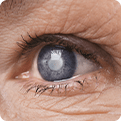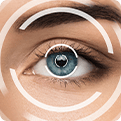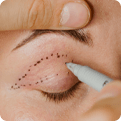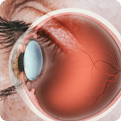
Glaucoma is an eye condition that occurs when increased fluid pressure inside the eye damages the optic nerve. Without receiving glaucoma testing and treatment for the disorder, you could be at risk of vision loss and even blindness in the most severe cases. One of the newest solutions, minimally invasive glaucoma surgery (MIGS), is a cutting-edge treatment that offers many advantages over traditional surgical approaches. Let’s examine if MIGS is the best option for Newark patients.
How to Identify if Minimally Invasive Glaucoma Surgery Is Your Best Option
Attending regular eye examinations is crucial due to the severe risks associated with glaucoma. If your optometrist or ophthalmologist identifies any warning signs, you will need to undergo a number of glaucoma tests. Following a positive diagnosis, an eye care specialist can then advise if MIGS is right for you.
What Is Minimally Invasive Glaucoma Surgery?
Minimally invasive glaucoma surgery refers to a group of procedures aiming to reduce intraocular pressure. These surgical procedures use tiny incisions and microscopic equipment to improve the eye’s natural drainage system and prevent vision loss from glaucoma. While traditional glaucoma surgeries have been performed for many years, they have a higher risk of complications such as infection or bleeding. MIGS causes less trauma, employing techniques like placing micro-devices in the eye to improve fluid outflow and lower eye pressure.
Do You Have Glaucoma Symptoms?
The lack of noticeable symptoms in its early stages is a challenge in catching glaucoma early-on. As glaucoma progresses, you may experience blurred vision, loss of peripheral vision, halos around lights, eye pain and headaches. And unfortunately, by the time these symptoms appear some permanent vision loss may have already occurred. For this reason, attending regular eye exams is vital for diagnosing and treating this disorder as soon as possible. With an early intervention, it may be possible to slow disease progression and preserve vision.
Could You Benefit From Minimally Invasive Glaucoma Surgery?
MIGS has various benefits for patients with mild to moderate glaucoma. Treatment can reduce the dependence on eye drops, or provide additional relief when prescription drops are ineffective. Compared with traditional glaucoma surgeries, MIGS also has a faster recovery time. Additionally, minimally invasive glaucoma surgery is often performed alongside treatments for cataracts to address both conditions simultaneously.
Are You a Suitable Candidate for MIGS?
Treatment is most suitable for those with open-angle glaucoma in its early to moderate stages. Patients with an intolerance to eye drops who still have high intraocular pressure after alternative treatments are also good candidates. For those with advanced glaucoma, eye care specialists will typically recommend alternative treatment approaches.
Talk to Us About Glaucoma Surgery in Newark, DE
Eye Care of Delaware is a trusted provider of glaucoma surgery in Newark and the surrounding cities. For expert help with glaucoma, cataracts, corneal disease and refractive surgery, speak with our team today. Call (302) 454-8800 or request an appointment now.








